Enhancing the Capacity of Thai Tourist Police Officers to Support Survivors of Sexual Violence
Date:
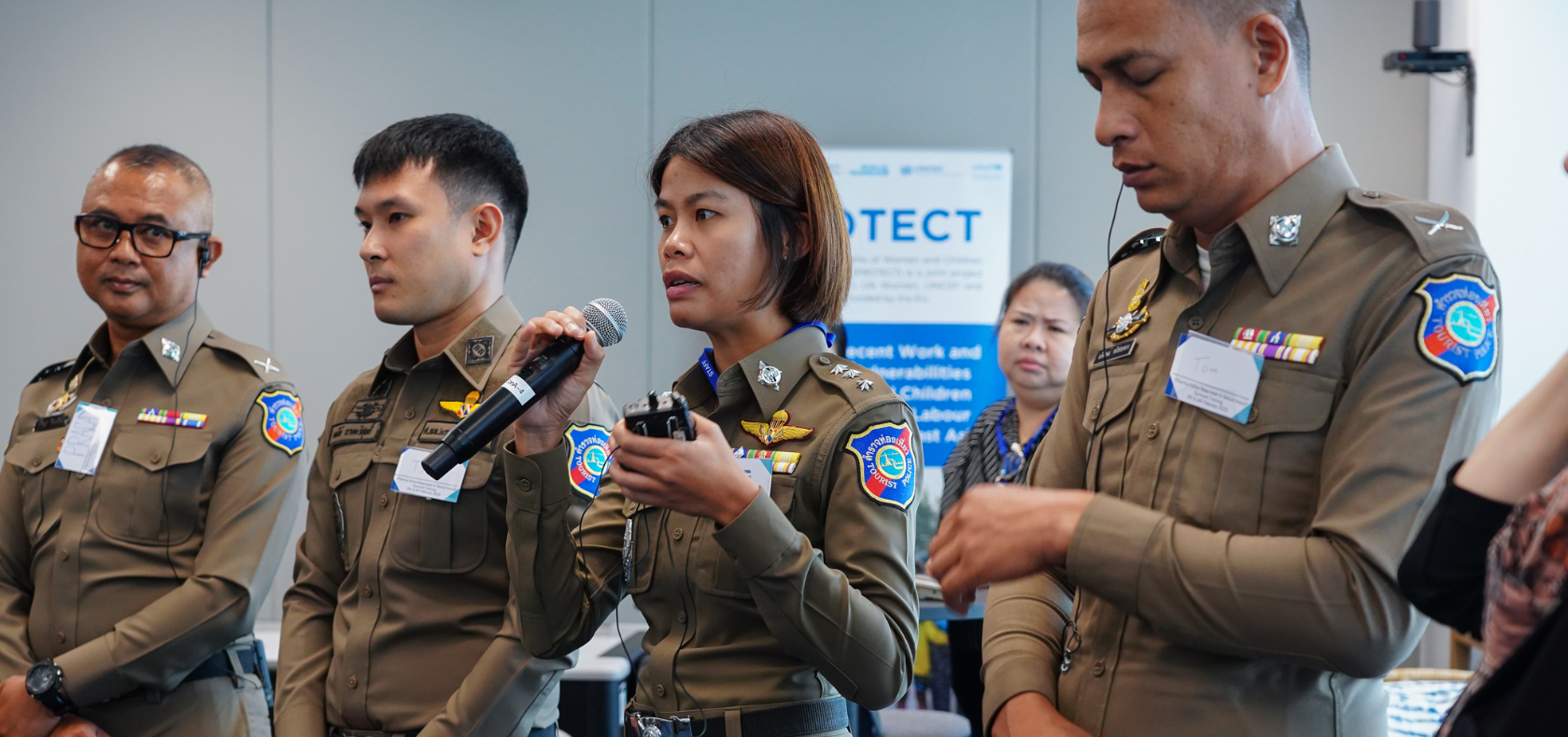
On February 5-6, senior personnel and officers from the Thai Tourist Police, totaling 21 participants from across the country, convened at the British Embassy in Bangkok for a two-day workshop on strengthening their response to sexual assault cases.
These officers, who often serve as the first point of contact for survivors of rape and sexual assault, explored practical tools and approaches to ensure compassionate, survivor-centered policing. Sexual violence is difficult for most survivors to talk about, and for those who experience it outside their home country, navigating unfamiliar laws and procedures can be especially challenging. Handling these sensitive cases with care is crucial to supporting survivors in reporting and seeking help, and the Tourist Police play a frontline role in assisting non-Thai survivors.
The workshop covered critical topics such as understanding trauma, improving coordination with other service providers, and fostering trust to better meet survivors’ needs. Expert facilitators led role-playing exercises to help officers apply concepts and principles to real-world situations. The training also addressed the unique vulnerabilities of women survivors of gender-based violence, including women migrant workers, recognizing their heightened risk of violence and the critical need for survivor-centered police responses that ensure access to essential services and justice, regardless of their immigration status.
Co-organized by the British Embassy in Bangkok and UN Women, the training was supported by the European Union through the PROTECT Project and the Australian Department of Foreign Affairs and Trade (DFAT).
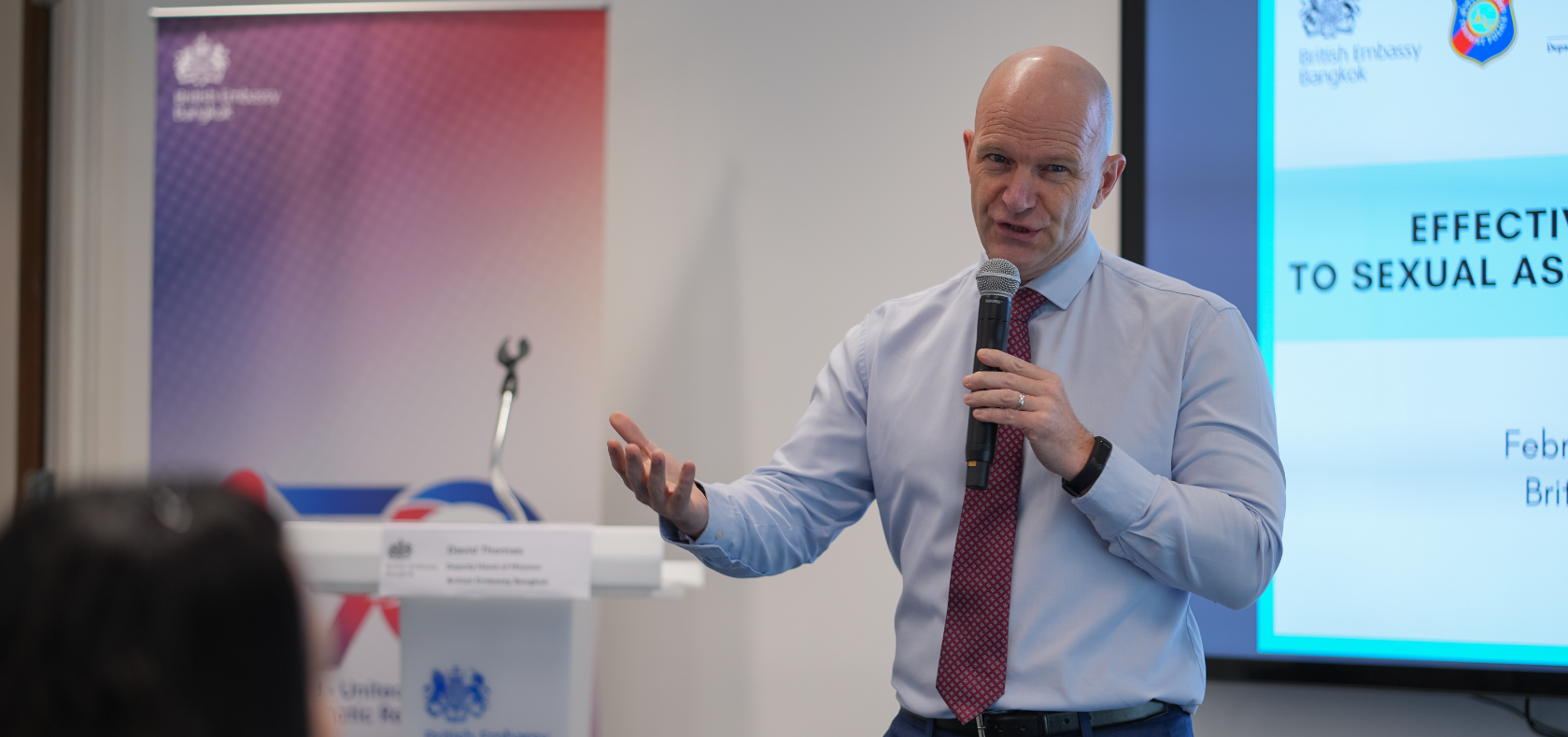
Opening the event, David Thomas, Deputy Head of Mission, British Embassy Bangkok, reflected on the collaborative nature of the training: “Ensuring support for survivors of sexual violence requires strong partnerships and a shared commitment. We recognize this as a crucial issue and are dedicated to working with partners to strengthen survivor-centered responses. This training stands as a testament to the collaboration between law enforcement and international partners, working together to create a more compassionate and effective system of support for survivors.”
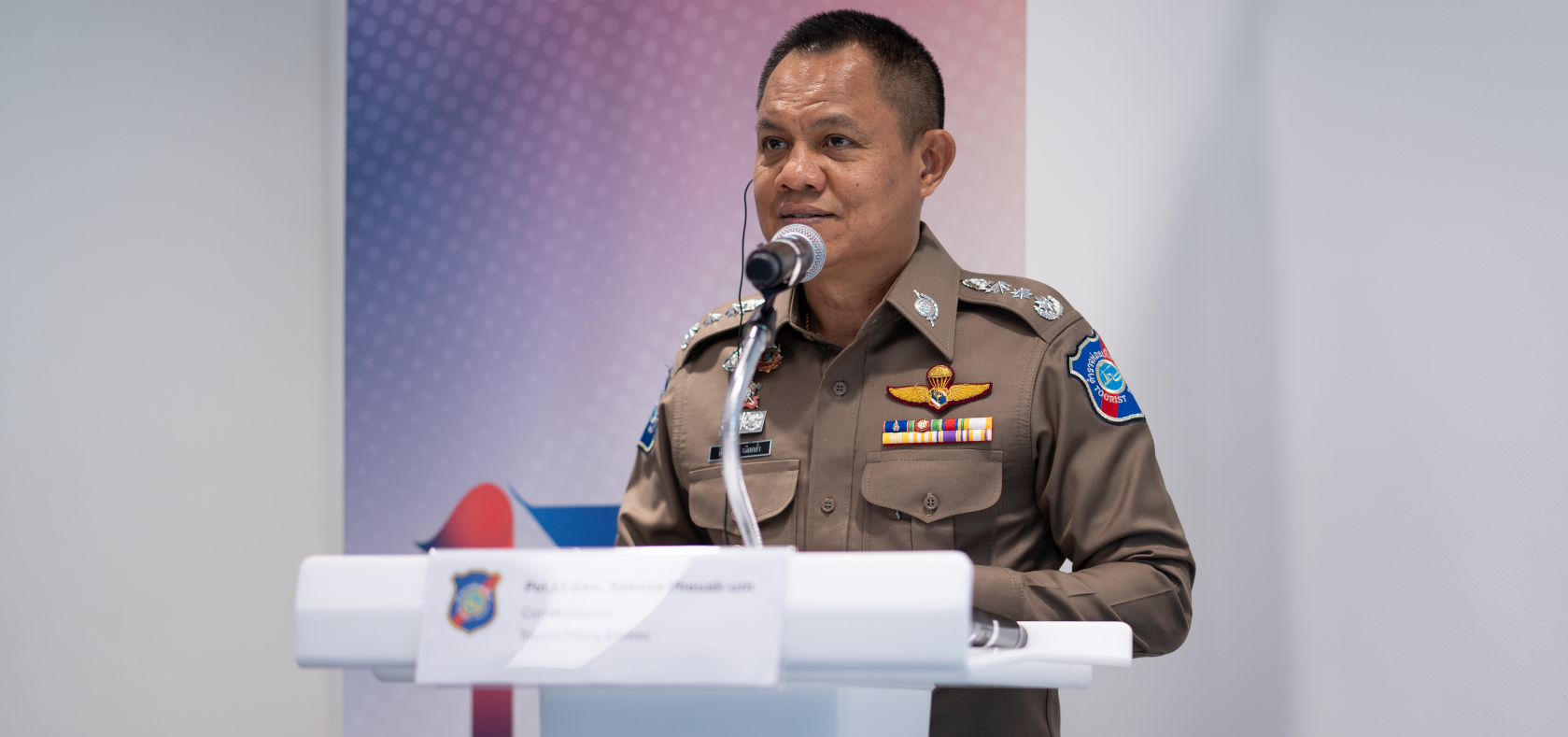
Police Lieutenant General Sak-si-Raa Puk–Am, Tourist Police Commissioner, underscored the critical role of law enforcement in ensuring safety and justice: “The Tourist Police must serve as a role model for other police units in protecting and ensuring that all individuals are treated fairly and safely. This is especially crucial in sensitive cases such as sexual assault, where officers must work with utmost caution, adopt a victim-centered approach, and prevent revictimization.”
The training curriculum included sessions on understanding the prevalence and context of sexual violence in Thailand and across the region, the legal framework, and how to counter myths surrounding sexual assault. Participants also explored the physiological and psychological impacts of trauma on survivors and how these influence their ability to recount their experiences. Officers were introduced to the Essential Services Package for Women Subject to Violence, an international standard for providing coordinated, survivor-centered services, also available in Thai language.
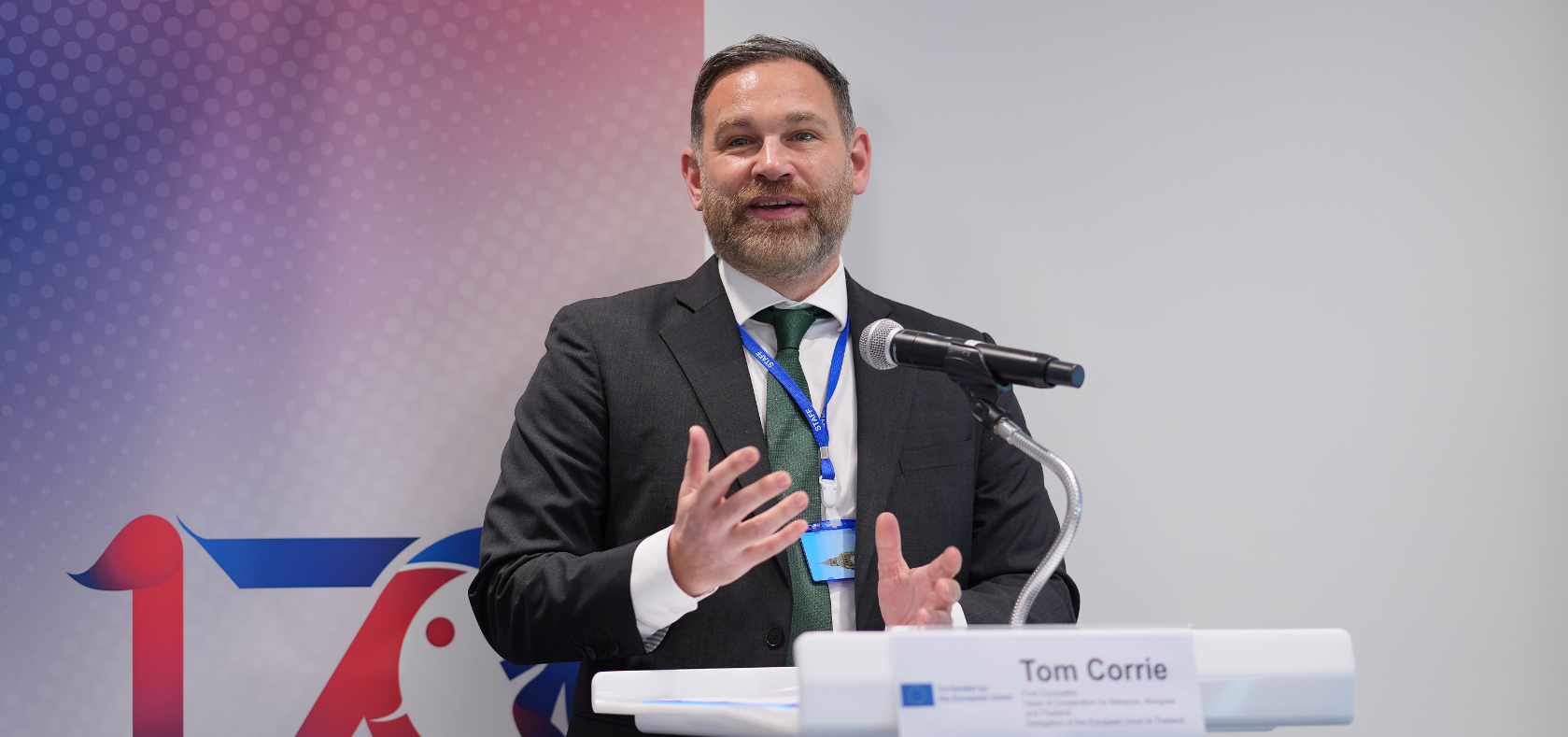
Tom Corrie, Head of Cooperation, Delegation of the European Union to Thailand, noted: “The EU is proud to support this training course. Women living abroad face unique risks, making them particularly vulnerable to violence and abuse. To mitigate the devastating impact of violence, it is fundamental that all women, regardless of nationality or immigration status, have access to information and services that address their needs.”
Interactive discussions and group activities helped participants examine their roles within the broader response system, including collaboration with embassies, hospitals, and social service providers. One key focus was developing referral pathways to ensure survivors have access to essential services such as health care, psychosocial support, and legal aid.
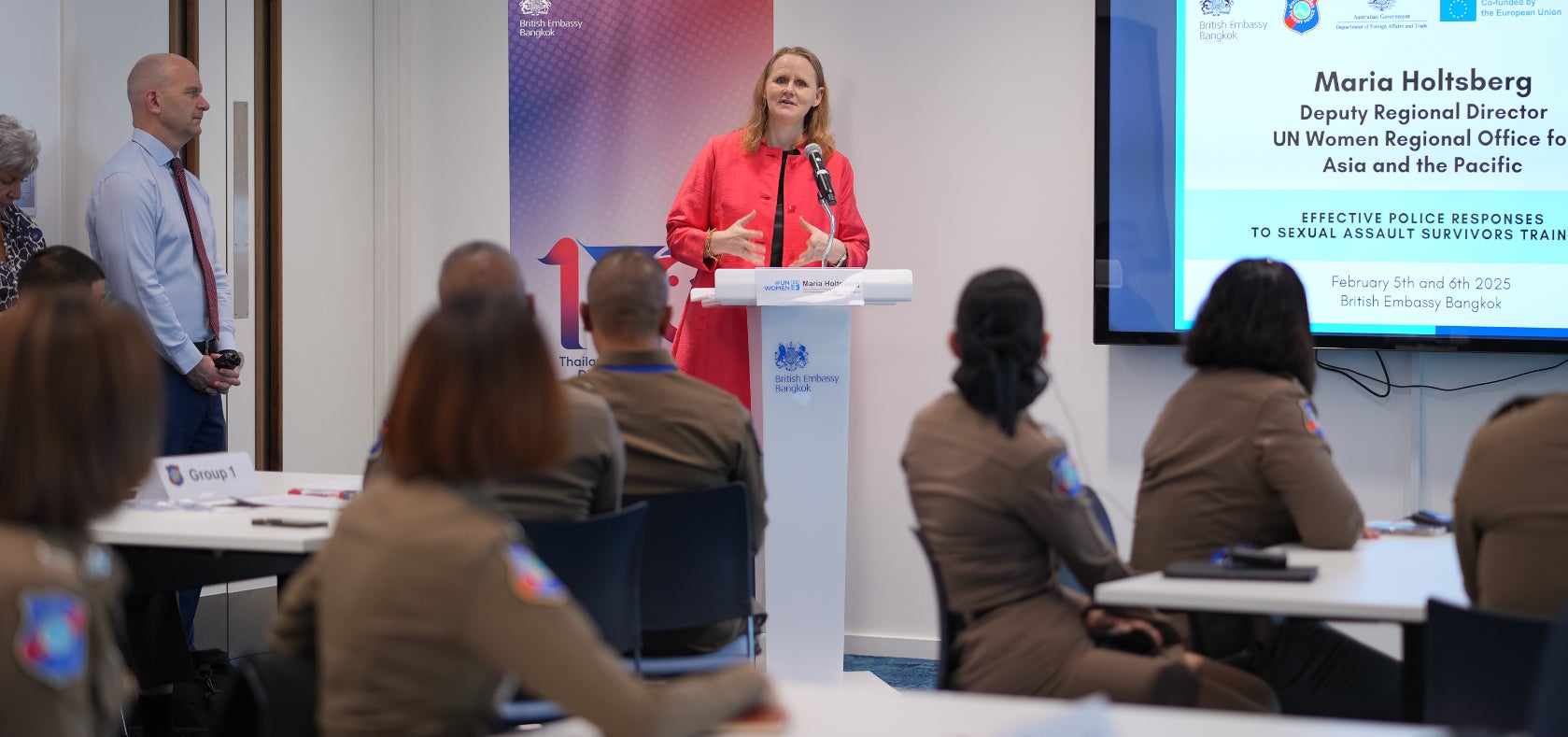
Maria Holtsberg, Deputy Regional Director for UN Women Regional Office in Asia and the Pacific, underscored the importance of effective police responses: “A positive initial interaction with police is vital for survivors and can be life changing in a terrible situation. High-quality police and justice services must be accessible to all women and girls, regardless of their background, with particular attention to those who are marginalized or at heightened risk of violence.”
The workshop concluded with participants expressing their commitment to applying survivor-centered approaches and tools in their day-to-day work. By enhancing their understanding of trauma, strengthening referral systems, and fostering partnerships with other service providers, these police officers are now better equipped to support survivors of sexual assault and ensure access to justice.
See the photo album of the training here.
This workshop was supported by the three-year project "Ensuring Decent Work and Reducing Vulnerabilities for Women and Children in the Context of Labour Migration in Southeast Asia (PROTECT)," running from 2024 to 2026. The project is jointly implemented by the ILO, UN Women, UNICEF, and UNODC to protect the rights of women and children in labor migration. It was also supported by Australia's Department of Foreign Affairs and Trade (DFAT) under a partnership with UN Women to end violence against women in the Asia-Pacific region.
